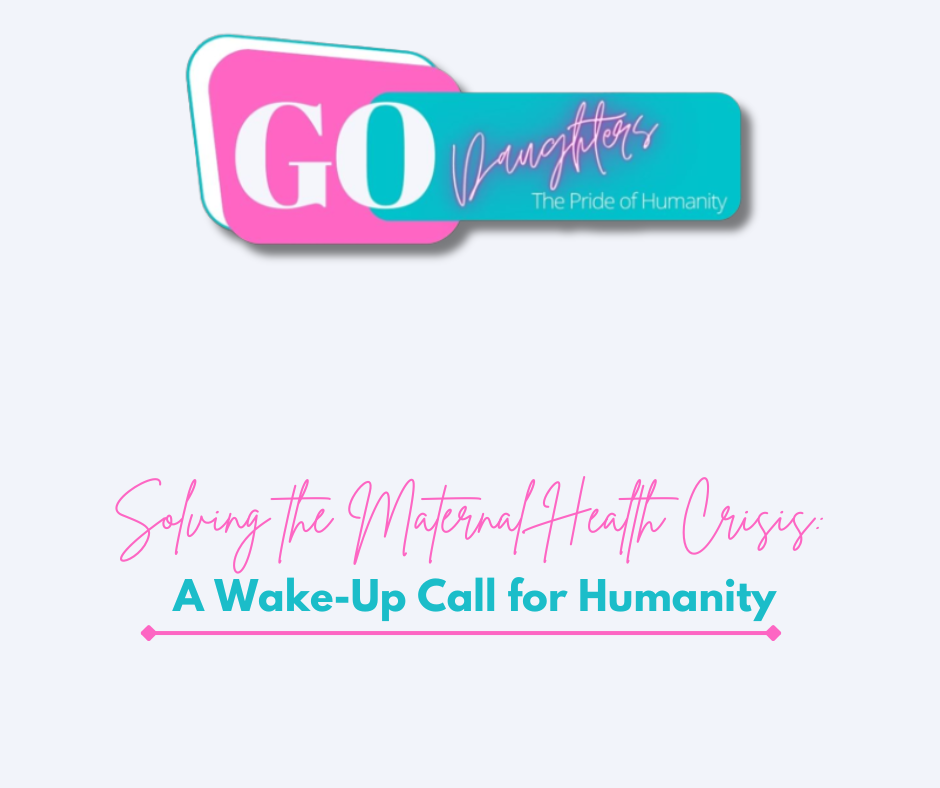
Every day, around the world, women are dying from preventable causes related to pregnancy and childbirth. Behind every statistic is a story—a daughter, a mother, a sister—who should have lived, who deserved better. The maternal health crisis is not just a healthcare issue. It is a reflection of our priorities as a global community, our political will, and our collective humanity.
And the truth is, we’re failing.
This is not just data. This is disaster.
According to global estimates, nearly 800 women die every day due to complications from pregnancy or childbirth. That’s one woman every two minutes. The majority of these deaths are preventable—caused by hemorrhage, infection, high blood pressure, and lack of timely medical intervention.
Now imagine this: These aren’t just numbers. These are real women, with names, with dreams, with futures that were violently interrupted by a system that didn’t care enough.
So, what’s holding us back?
Why Are Women Still Dying?
1. Inadequate Access to Quality Care
Too many women still give birth without skilled health professionals present. Many rural and marginalized communities lack basic healthcare infrastructure.
2. Gender Inequality and Social Injustice
Women’s health is often deprioritized in policy decisions. Lack of education, child marriage, and poverty further escalate the risks.
3. Broken Healthcare Systems
In many parts of the world, healthcare remains underfunded, mismanaged, and inaccessible to those who need it most—especially pregnant women in vulnerable regions.
4. Silence and Stigma
There is an uncomfortable silence around maternal deaths. It’s not discussed. It’s not debated. It’s just buried. Literally.
We Must Act—Now
This is not a moment for silence. It is a moment for urgency, for action, and for responsibility. We cannot continue to normalize the preventable death of mothers. We cannot continue to turn away.
We need radical reform—not tomorrow, but today.
Real Solutions to the Maternal Health Crisis
Let’s not talk theory. Let’s talk action—practical, policy-driven, urgent steps that we must take as a society:
1. Strengthen Community-Based Healthcare
Train midwives and local health workers. Provide them with the tools and medications they need. Mobile clinics and digital health platforms can bring care to the doorstep.
2. Prioritize Women in Policy
Maternal health must be placed at the center of every health policy. Governments must fund maternal health services and hold systems accountable for delivery and outcomes.
3. End the Global Disparity
Women in low-income countries are 120 times more likely to die during childbirth than those in high-income countries. This is unacceptable. Wealthier nations must support global maternal health through funding and shared expertise.
4. Invest in Education and Empowerment
Girls who stay in school longer marry later, have fewer children, and are more likely to access healthcare. Educating girls is one of the most powerful tools against maternal mortality.
5. Create a Culture of Care and Conversation
We need to break the silence. Talk about maternal health in schools, workplaces, homes, and media. Encourage communities to protect and support pregnant women—not shame them.
Your Voice Matters
You might wonder, “What can I do?” The answer is—plenty.
-
Raise your voice.
-
Share stories.
-
Support NGOs and grassroots campaigns.
-
Demand that maternal health becomes an election issue.
-
Be the advocate that mothers need.
What We Ignore Today, We Will Mourn Tomorrow
This is not just about mothers. This is about families, about communities, about the very foundation of a healthy society. When we let women die giving life, we tear the fabric of humanity.
This crisis is not inevitable. It is the result of choices made—and not made. And it can be solved.
But only if we care enough to act.
Let’s rewrite the future. Let’s ensure that no woman dies giving birth to life. Let’s turn our outrage into action and our compassion into policy.
Because every mother matters.




